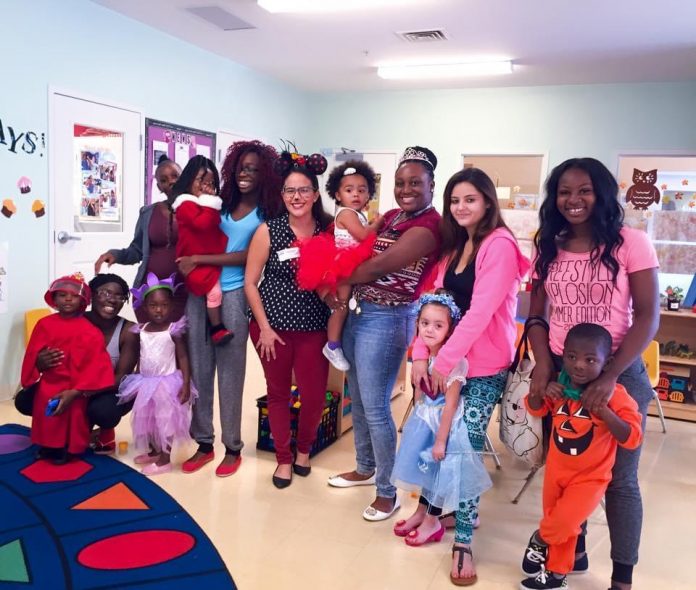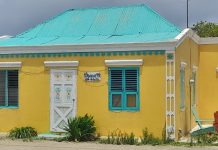She is not unknown in Aruba, but few realize that maybe the reason why Carolina Thiel-Span is so active in the social sphere on the island. These activities help her manage her OCD – that is, her Obsessive Compulsive Disorder.
OCD, obsessive compulsive disorder is a condition that brings anxiety and restlessness to people, who find they are always looking for an activity to calm themselves. These activities oftentimes are repetitive and become compulsive. These compulsions provide temporary relief to the people with OCD. In severe cases, it can get in the way of the daily activities of a person, and some people find it difficult to cope with daily life.
But Carolina has learned to live with her OCD, and what’s more, ever since she was young, her parents helped her manage her condition through planning her day. And by planning her day, her schedule, her activities, she developed abilities to take on projects, putting them together, and executing them.
Energizer Bunny
Any person who meets Carolina realizes that she is a fountain of energy. “Where did I get my energy? Mi husband says that I am the definition of the ‘Energizer bunny’. I was always an active persona, and precisely on the days that I do less and are less active, I have less energy.” When she is not active, Carolina feels a bit depressed. “I think this has to do with OCD, because by being active, I am in control.”
Carolina was nine years old when her parents decided they needed to have their youngest daughter diagnosed. “Ever since I was a baby I was very irritable. I slept at night, but didn’t sleep during the day. I was never able to nap, and was never calm on my own. Before, they thought I had ADHD (Attention Deficit Hyperactivity Disorder).” And indeed they first had Carolina screened for ADHD, and her diagnosis indicated ADHD; but when she was older, a psychologist in the United States realized that her symptoms were more like OCD than ADHD. “It was more because the moments when I felt irritated, it wasn’t because I had ADHD, but because I didn’t have any control of what I was doing or what I wanted to do.”
The diagnosis helped bring calm to Carolina, because through that, she was more aware of her compulsions and she could differentiate between when she was really doing something because she wanted things done well, versus she’s doing too much (Carolina describes this as ‘overdrive’) without being realistic. “It helps me a lot in my self-reflection, and it helped me decide when I need to take a break and say, now it’s enough.”
Confrontational
For Carolina, initially she was very confrontational when she received the OCD diagnosis. And what she realized was that same as with ADHD, same with Autism, there are various degrees of OCD and different ways in which the disorder manifests.
“When you think of OCD, the stereotype is people who are super organized and people who are always cleaning. I am not like that. I organized in a different way, but I’m not a persona for whom all that is around me needs to be organized, or that I am obsessive with cleaning. On the contrary, I find myself a messy person.” But her need to control manifests in another way. “For example, when we go on vacation, I need a clear itinerary, with little free time. That would give my family a lot of trouble when I was a kid, because I wanted to know what is happening every moment, and they found that annoying. They would have wanted to have a day without doing anything, and I found that annoying because in my mind, that is not possible. The need to organize is more about my time, and not about cleaning.”
Carolina studied Public Health Management and she is working at the Public Health Inspection, and she is also two days at the Youth Management Direction, to co-execute the program of Early Intervention, focused on the créche (daycare) system in Aruba.
Besides that, she is a volunteer specialized in fundraising for Koningin Wilhelmina Kanker Fonds (Queen Wilhelimina Cancer Foundation), she is a guide at Rainbow Girls and president of the Autism Foundation of Aruba.
Answering how her OCD helps her with all these responsibilities which overlap the whole week, even during the weekend, she says: “Y try so that by the moment I get home, afternoon and evening, I make sure to have free time, so that I can connect with my husband, my family and my dogs. There are pros and cons in everything, but I do think the OCD helped me learn to be more organized to maximize my time”. In other words, Carolina uses a disability as a tool for her personal and professional life. “I avoid procrastination, I never wait to do anything because, what if the computer breaks down. So I’m always pending and ready if something catastrophic happens, and that’s why I finish things as soon as possible.”
Over time, Carolina had to learn that she cannot always be in control of everything, and she needs to let go. “I am a work in progress, meaning that I need to understand other people and give them space so they can understand me, and give them time to tell me what they need. And here, communication is key. Carolina says that she is realizing that she can manage her OCD better without bothering other people. Her husband always says to ‘let it go’, and they have a dog named Elsa. The name came because her niece is obsessed with the movie Frozen; but Carolina herself learned that sometimes, she needs to ‘let it go’ to be able to move forward. “It became a joke in our family.”
Fighter for Kids
It was her parents who also realized it is important for Carolina to be involved in the community and organizations from a young age. “More and more I realize that I like to work with organizations focused on children. Why? Because I feel that the added value is more when working with kids. When you help them from a young age, the impact can last their whole lives. I’m not saying that you don’t need to help all people, but for me, working with kids is satisfactory; they are still like a sponge, you can help form them and help them develop, which has impact on their whole life.” And her catchy e-mail address, the ‘fighter for kids’? That was the result of a group work during her study for the organization Kids Beating Cancer, and Carolina suggested the name ‘Fighter for Kids’. When the project was finalized, she asked if she could take the name for herself, and the rest is history.

















